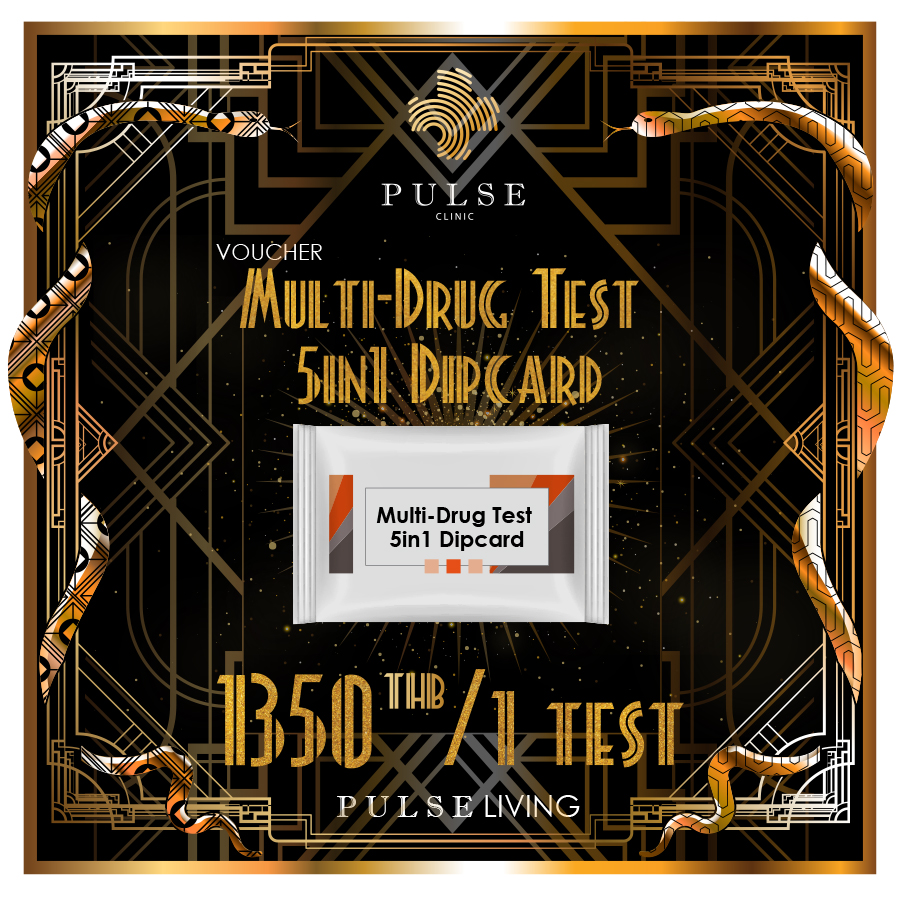How Long Do Stimulants Stay in Your System?
2932
Drug detection times vary based on half-life and individual factors, with metabolites sometimes lingering longer than the estimated half-life.

How Long Do Stimulants Stay in Your System?
Stimulants are a commonly abused class of drugs that overstimulate the central nervous system, causing heightened alertness, energy, and productivity. Some can also induce euphoria, agitation, delusions, and hallucinations, while triggering aggression and paranoia, which may lead to violent behavior. Misuse of stimulants can result in severe health issues, including stroke, heart disease, seizures, and extreme tooth decay. Taking excessive amounts can be dangerous. For those prescribed stimulants, healthcare providers may use tests to ensure the dosage is safe and appropriate.
Get Drug Test Kits Delivered Right to Your Doorstep Today!
![]() +66-84-226-2569
+66-84-226-2569  @pulserx
@pulserx ![]() PulseClinic
PulseClinic
What are Stimulants?
Stimulants are a type of drug that enhance the speed of communication between the brain and the body, often making individuals feel more awake, alert, confident, or energetic.
There are many things that could be considered stimulants, including legal ones like caffeine and nicotine, prescribed medications such as dexamphetamines, Adderall, and methylphenidate (Ritalin), as well as illegal drugs like speed, ice, and cocaine.
These substances can come in various forms, including tablets, capsules, powders, and crystals, which may be clear, white, or brownish in appearance, often characterized by a strong smell and bitter taste. Consult with your medical provider if you aren’t sure if your prescribed medications are stimulants.
How Do Drug Tests Work?
Drug testing typically involves collecting a sample, such as urine or hair, to detect specific substances or chemicals linked to particular drugs. A positive test result occurs when the targeted substance is identified in the sample. The accuracy of drug tests can vary depending on the type of test and the drug being analyzed.
How Long Do Stimulants Stay In Your System?
Drug detection times vary due to differences in each drug's half-life (the time it takes for half of the drug to leave the body) and individual factors. While half-life estimates provide a general idea of how long a drug remains in the system, traces called metabolites can linger longer.
Oral fluid tests may detect stimulants for hours or days, while hair follicle tests can reveal their presence for up to three months. Various factors influence how long stimulants stay in the body, which can differ from person to person. For example, Cocaine has a short half-life, typically lasting less than an hour. Methamphetamine, in contrast, has a longer half-life of about 12 hours, with its effects lasting between four to eight hours. Amphetamines, commonly found in ADHD medications, have a half-life of less than 11 hours.
Detection Time for Stimulants
Window periods vary depending on the type of substance and testing method.
Urine | Blood | Saliva | Hair | |
Adderall | 4 days | 2 days | 2 days | 90 days |
Cocaine | 4 days | 2 days | 2 days | 90 days |
Crack Cocaine | 4 days | 2 days | 2 days | 90 days |
Ecstasy | 4 days | 2 days | 24-48 hours | 90 days |
Flakka | 3 days | 3 days | 3 days | |
Methamphetamine | 7 days | 3 days | 4 days | 90 days |
Ritalin | 3 days | 2 days | 3 days | 90 days |
Vyvanse | 3 days | 24 hours | 2 days | 90 days |
Trust PULSE CLINIC to take care of your health like other 45000 people from over 130 countries. We provide discreet professional service with high privacy. Here to help, not to judge.
Potential Risk of Stimulants
Stimulants can reduce focus by causing feelings of jitteriness, anxiety, and irritability, while also impairing judgment and increasing impulsive behavior. They may disrupt sleep, promote excessive urination that leads to dehydration, and pose serious health risks by raising blood pressure and triggering heart palpitations. Overuse of stimulants can lead to both physical and psychological dependence.
Are All Stimulants Addictive?
Whether legal or not, certain stimulants have the potential to cause addiction, commonly diagnosed by professionals as stimulant use disorder. It is crucial to take these medications only as prescribed, as misuse can lead to addiction. In some cases, stimulant use disorder may develop after as little as one week of improper use.
Get a Self Drug Test Kit Today!
Buy Drug Test Kits at PULSE Clinic
| Item | Order |
 | Multi-Drug Test 5in1 1,350 THB |
 | Urine Multi-Drug Test 7in1 1,650 THB |
For more information about the medication and ordering process,
please email pulseliving@pulse-clinic.com or chat on your preferred platform.
![]() +66-84-226-2569
+66-84-226-2569  @pulserx
@pulserx ![]() PulseClinic
PulseClinic
It Screens for the Following 5 Drugs
- THC: Cannabis, Marijuana, hashish
- MDMA: Ecstasy
- COC: Cocaine, Crack
- MOR: Morphine, Heroine, Opiates
- AMP: Amphetamines
One test to assess everything at once.
This multi-drug test is easy to use and quick to perform, and it is the best way to gauge the situation quickly.
Trust PULSE CLINIC to take care of your health like other 45000 people from over 130 countries. We provide discreet professional service with high privacy. Here to help, not to judge.
Loading...
Clinic Locations
Loading...

